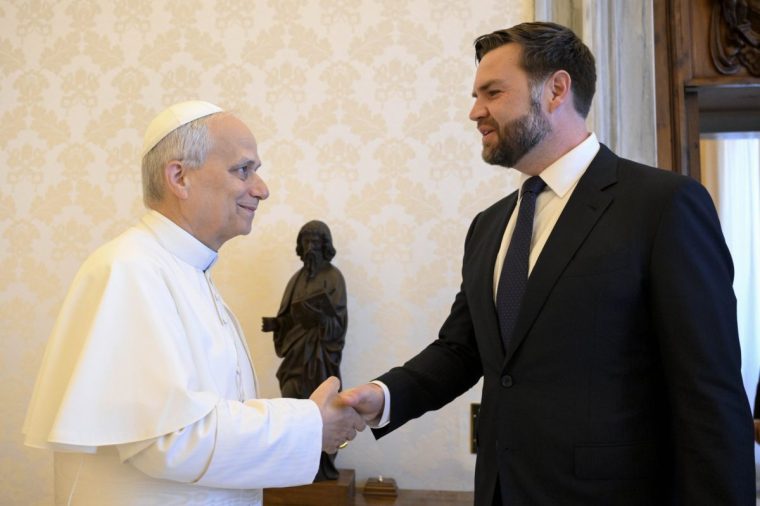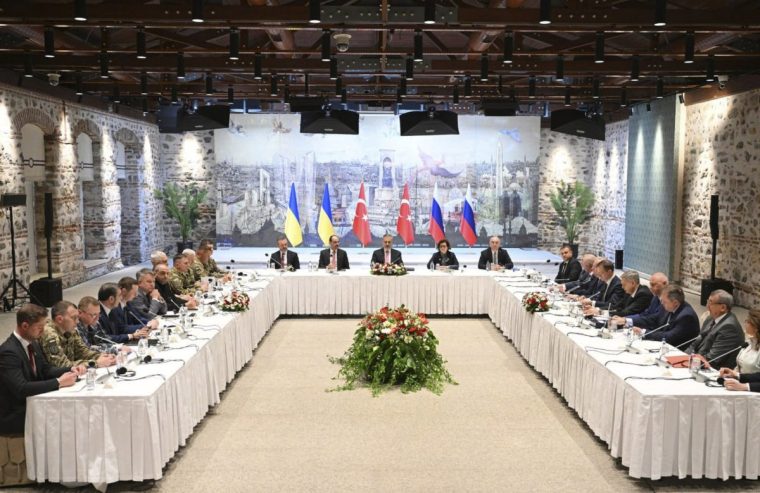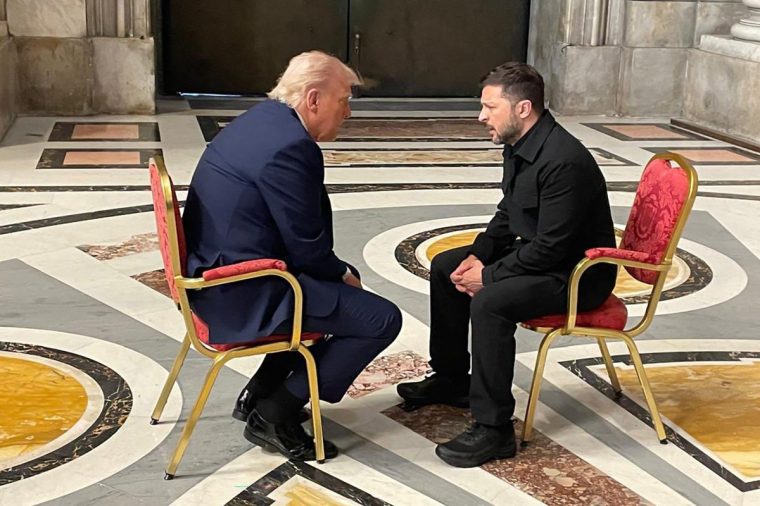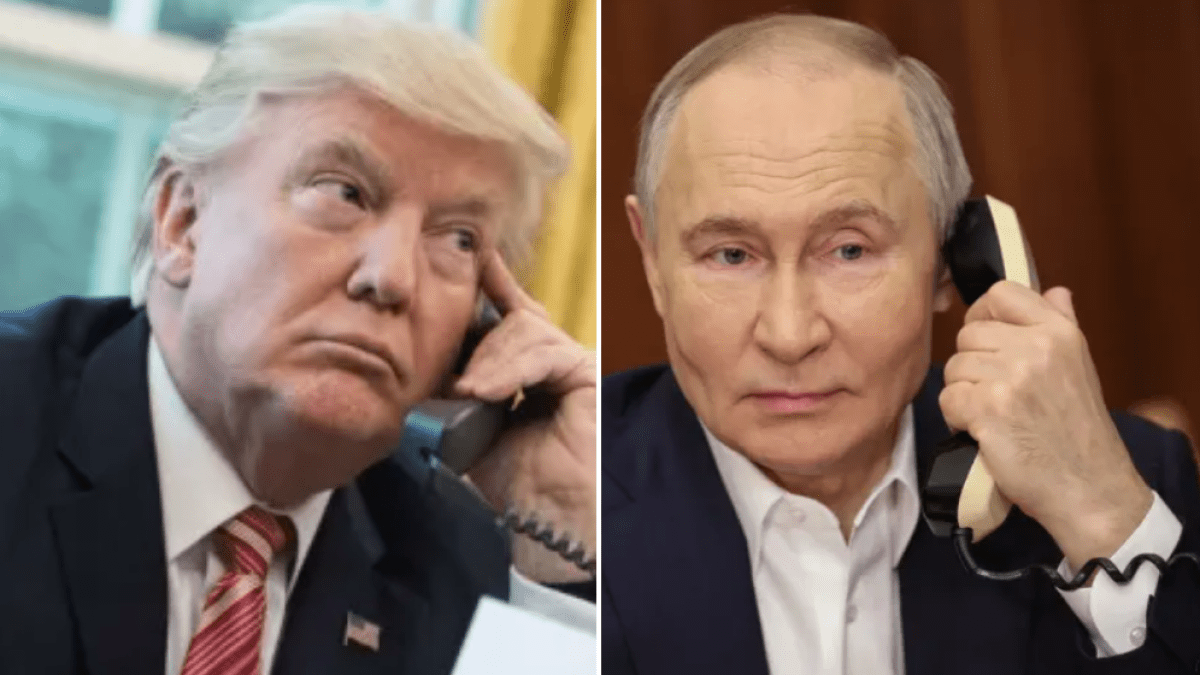Vladimir Putin says Moscow ready to work with Kyiv on potential peace deal after phone call with US President
Donald Trump has said Russia and Ukraine will “immediately” begin ceasefire negotiations after an “excellent” phone call with Vladimir Putin.
Speaking after the two-hour conversation, Putin said efforts to end the war were “generally on the right track” and that Moscow was ready to work with Ukraine on a potential peace deal.
Addressing a press conference, Ukrainian President Volodymyr Zelensky said he was considering a high-level meeting between Ukraine, Russia, the US, EU members and the UK.
In a post on Truth social, Trump said: “Negotiations between Russia and Ukraine will begin immediately.”
Trump said the Vatican, “as represented by the Pope, has stated that it would be very interested in hosting the negotiations. Let the process begin!”
 JD Vance meet Pope Leo XIV at Vatican City (Photo: Vatican/Corbis via Getty)
JD Vance meet Pope Leo XIV at Vatican City (Photo: Vatican/Corbis via Getty)
Putin said: “We have agreed with the president of the United States that Russia will propose and is ready to work with the Ukrainian side on a memorandum on a possible future peace accord.”
The memorandum would define “a number of positions, such as, for example, the principles of settlement, the timing of a possible peace agreement,” he added.
He said that if appropriate agreements were reached, there could be a ceasefire, adding that direct talks between Russia and Ukraine gave “reason to believe that we are generally on the right track.”
“The main thing for us is to eliminate the root causes of this crisis,” Putin said. “We just need to determine the most effective ways to move towards peace.”
Trump is under pressure to secure progress in peace negotiations after pledging to resolve the conflict on “day one” of his second term.
He has brokered talks between Ukraine and Russia since re-entering the White House, but has so far failed to bring about any lasting progress.
Putin took the call in a music school in the southern Russian resort city of Sochi, Russian state TV reported.
Shortly before it, US Vice President JD Vance said that peace talks had hit an “impasse” because Russia’s leader did not have a “strategy” for ending the war.
“I think, honestly, that President Putin, he doesn’t quite know how to get out of the war,” Vance said. “He’s got a million men under arms. He’s re-engineered his entire economy… I’m not sure that Vladimir Putin has a strategy for how to unwind the war.”
First direct Ukraine-Russia talks fail
Russia and Ukraine held their first direct talks in Turkey on Friday, though neither Putin nor Trump attended. The two sides agreed to a large-scale prisoner exchange but appeared not to make progress on ending the conflict.
Russia reportedly demanded further territory from Ukraine during the talks.
In the run-up to the meeting, Kyiv had pushed for a 30-day ceasefire but the Kremlin has rejected this.
Hours after the talks concluded, a Russian attack hit a bus carrying civilians in Ukraine’s Sumy region, killing at least nine people and injuring four, according to local authorities.
 Ukrainian (left) and Russian (right) delegations attend talks at Dolmabahçe Palace in Istanbul, Turkey, last week (Photo: Ramil Sitdikov/Pool via AP)
Ukrainian (left) and Russian (right) delegations attend talks at Dolmabahçe Palace in Istanbul, Turkey, last week (Photo: Ramil Sitdikov/Pool via AP)
Russia is widely considered to be stalling negotiations, with little incentive to bring the conflict to a close as it holds an advantage on the battlefield.
The Kremlin has set out a series of maximalist demands in peace talks, seeking not only to control of swathes of Ukrainian territory, but also to ensure Kyiv’s military is rendered ineffective, by reducing the size of its army, banning it from joining Nato, and preventing it from receiving military support from allies.
A 30-hour Easter ceasefire, also brokered by Trump, brokedown after Russia was accused of carrying out hundreds of shellings and drone attacks.
 Volodymyr Zelensky meeting Donald Trump at Pope Francis’s funeral (Photo: Ukrainian Foreign Ministry/AFP)Trump-Putin relations cooling
Volodymyr Zelensky meeting Donald Trump at Pope Francis’s funeral (Photo: Ukrainian Foreign Ministry/AFP)Trump-Putin relations cooling
Trump has been attempting to broker a ceasefire in Ukraine since returning to the White House in February, but the talks have largely failed to bear fruit except for a ceasefire in the Black Sea, which is considered largely inconsequential to the course of the war.
Throughout the negotiations, the US President has caused alarm among Nato allies with his apparent sympathy towards Putin and hostility to Ukraine, blaming Ukraine for starting the war, temporarily withholding intelligence from Kyiv and threatening to pull military support, as well as hinting that he would withdraw from the Nato military alliance altogether.
But his relationship with the Russian leader appeared to have cooled in recent weeks, with Trump making a series of public criticisms as he grew frustrated at the Kremlin’s unwillingness to end the war.
